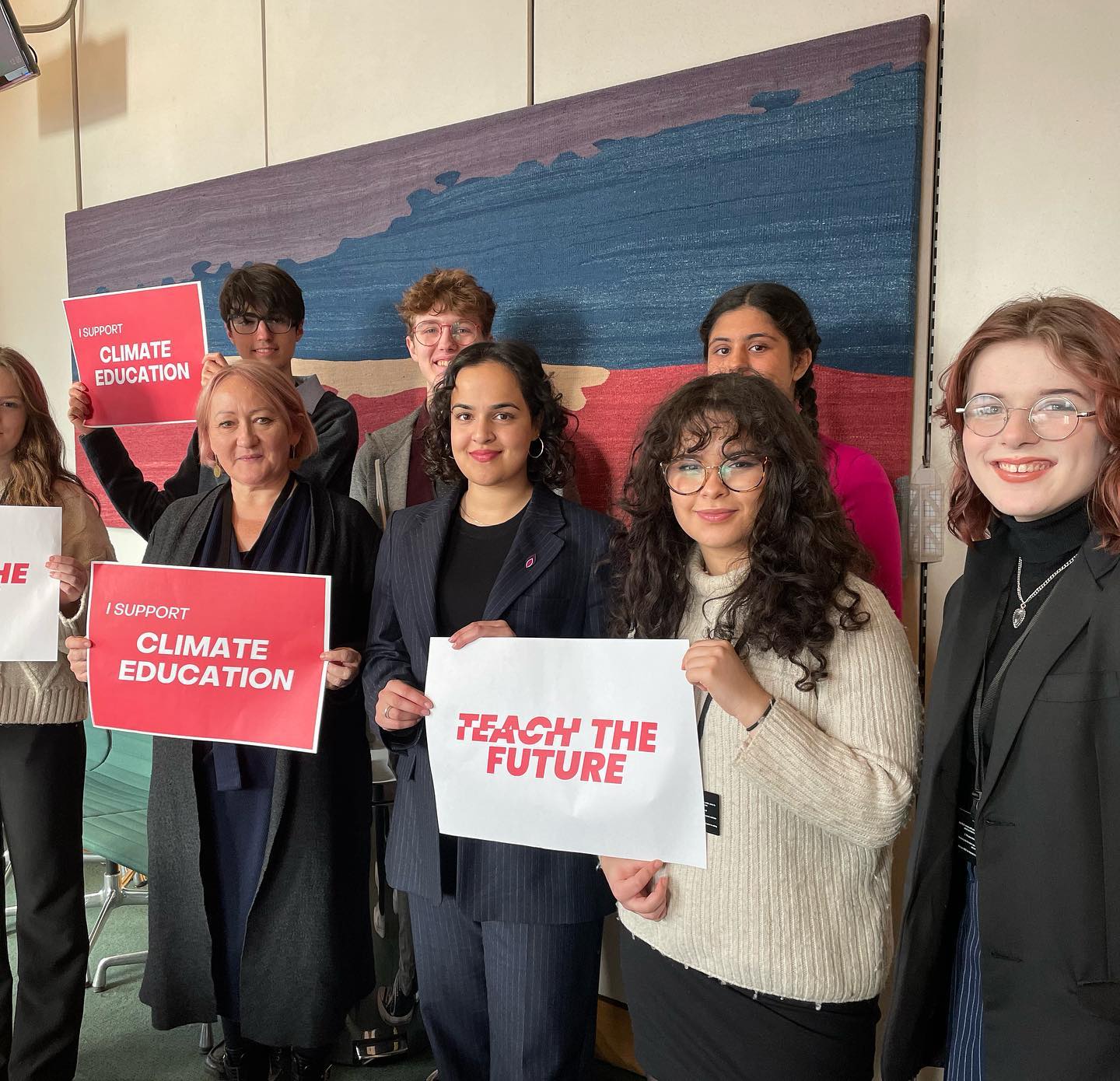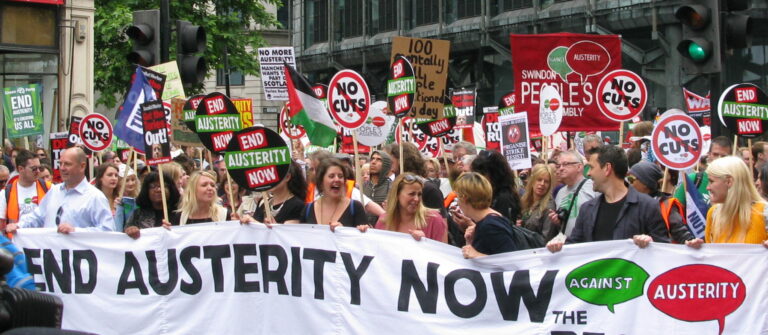Teach the Future want more young people to learn about the climate crisis (Credit: Teach the Future)
With droughts, pollution, and wildfires becoming the norm, the climate crisis has led to worldwide destruction. But eco-anxiety is failing to dent the willpower of teens and young adults to take proactive measures against the climate crisis. London Climate Action Week commences today.
Grassroot organisations like Teach the Future are pushing for a wider reach in terms of climate education in the UK. With branches all across the country, their student-led campaign is staffed by nearly 70 volunteers and is still growing.
Rosa Strange, 18, is one such volunteer. “I joined Teach the Future because I, like many other young people, care deeply about preventing the climate crisis and believe strongly in the power of education in equipping future generations with the beliefs and skills to do this,” she says.
Back in 2021, the then Education Secretary Nadhim Zahawi promised to integrate climate change into UK curricula by 2023, but this has failed to materialise.
In a survey conducted by Teach the Future, only 4 per cent of students felt like their schools were teaching them about the climate crisis while 75 per cent of teachers felt like they weren’t provided adequate training regarding climate change in the UK.
Across the world, governments are teaching children to take proactive measures against the climate crisis. UNESCO’s globally recognised Action for Climate Empowerment (ACE) guidelines state that “the over-arching goal of ACE is to empower all members of society to engage in climate action.”
Singapore requires children to be introduced to global warming in primary school and education authorities in Costa Rica emphasises that individual students have the power to cultivate green economies and sustainable lifestyles. In contrast, the current UK strategy appears to involve no mention of climate action other than conservation.
The national curriculum in England references climate change as early as Year 7, but the broader implications of climate change on society, the environment, as well as social justice issues are not touched upon.
In fact, a study done at the University of Bristol found that climate education falls underwhelmingly below teachers’ expectations.
The UK strategy promotes “children’s anxiety as the problem, rather than preparing students as agents of change, able to act collectively to address climate change”, says Professor Howard Jones, one of the lead researchers of the University of Bristol study.
Jones says it should boil down to one critical theme – preparing students for freely willed action to address the causes and consequences of climate change.
While a nationally mandated curriculum centred around climate change does not exist, a number of organisations are offering learning material for teachers.
One such platform is Earth Cubs, an environmental learning programme that offers free climate-centred learning resources for schools. These include interactive lessons, assemblies, quizzes, presentations, comics and videos. Currently, over 4,500 schools in nearly 100 countries use Earth Cubs.
“Everything we create is encouraged to excite and empower young children. We’re keen to encourage children to learn and love the world rather than being terrified and potentially suffer from eco-anxiety,” says Michelle Parkes, Head of Growth and Impact at Earth Cubs.
Parkes insists that “positive planet-saving action is key” for children to become future environmental leaders.
Teach the Future volunteer Rosa Strange agrees. “People from all different areas and industries need to work together to effectively deal with the climate crisis. It is not good enough to leave climate education just for science and geography students,” she says.










